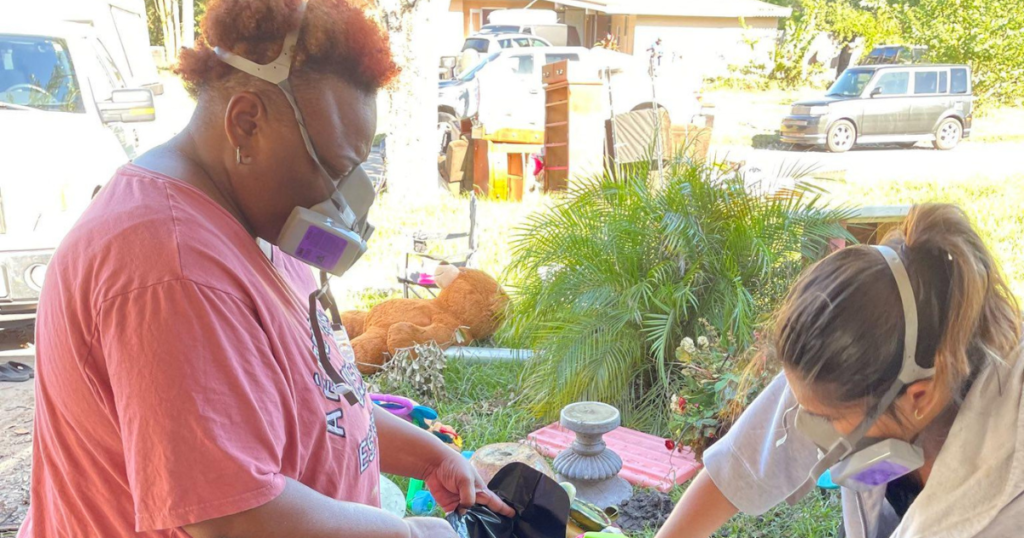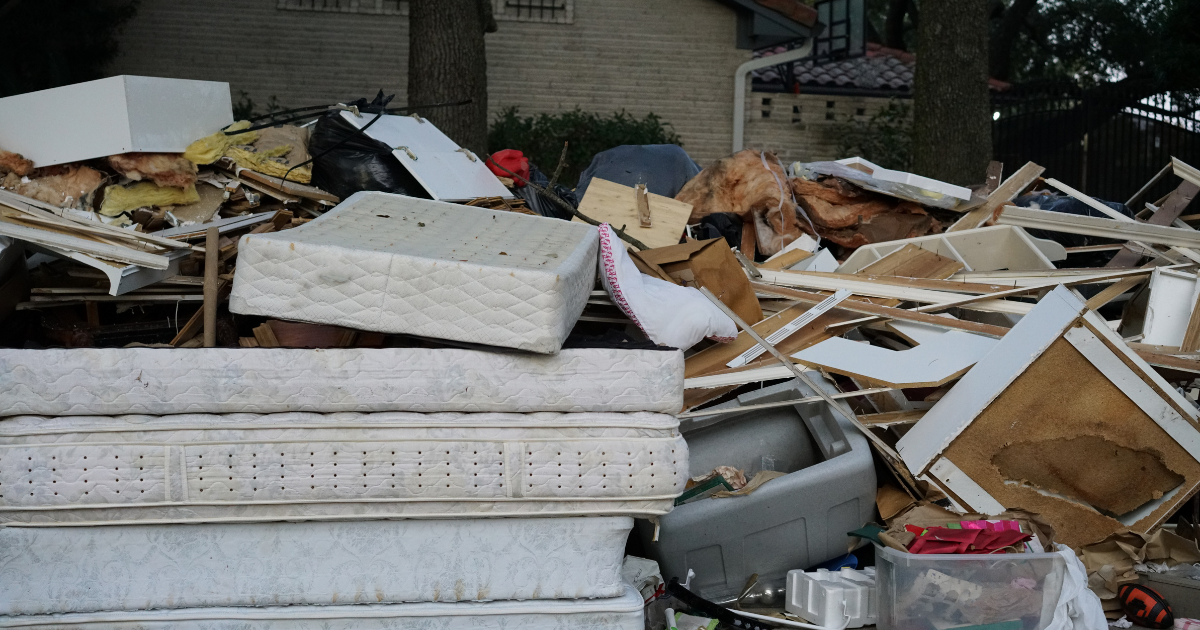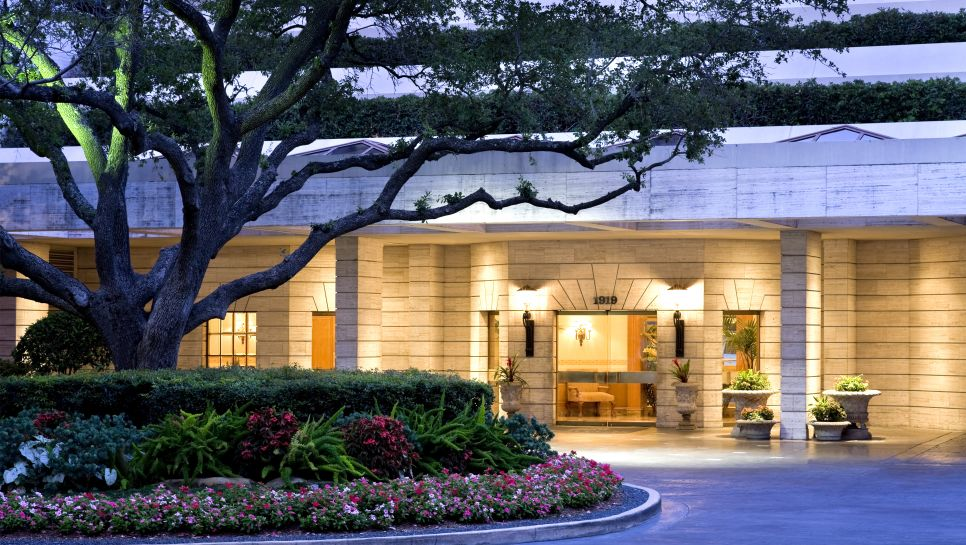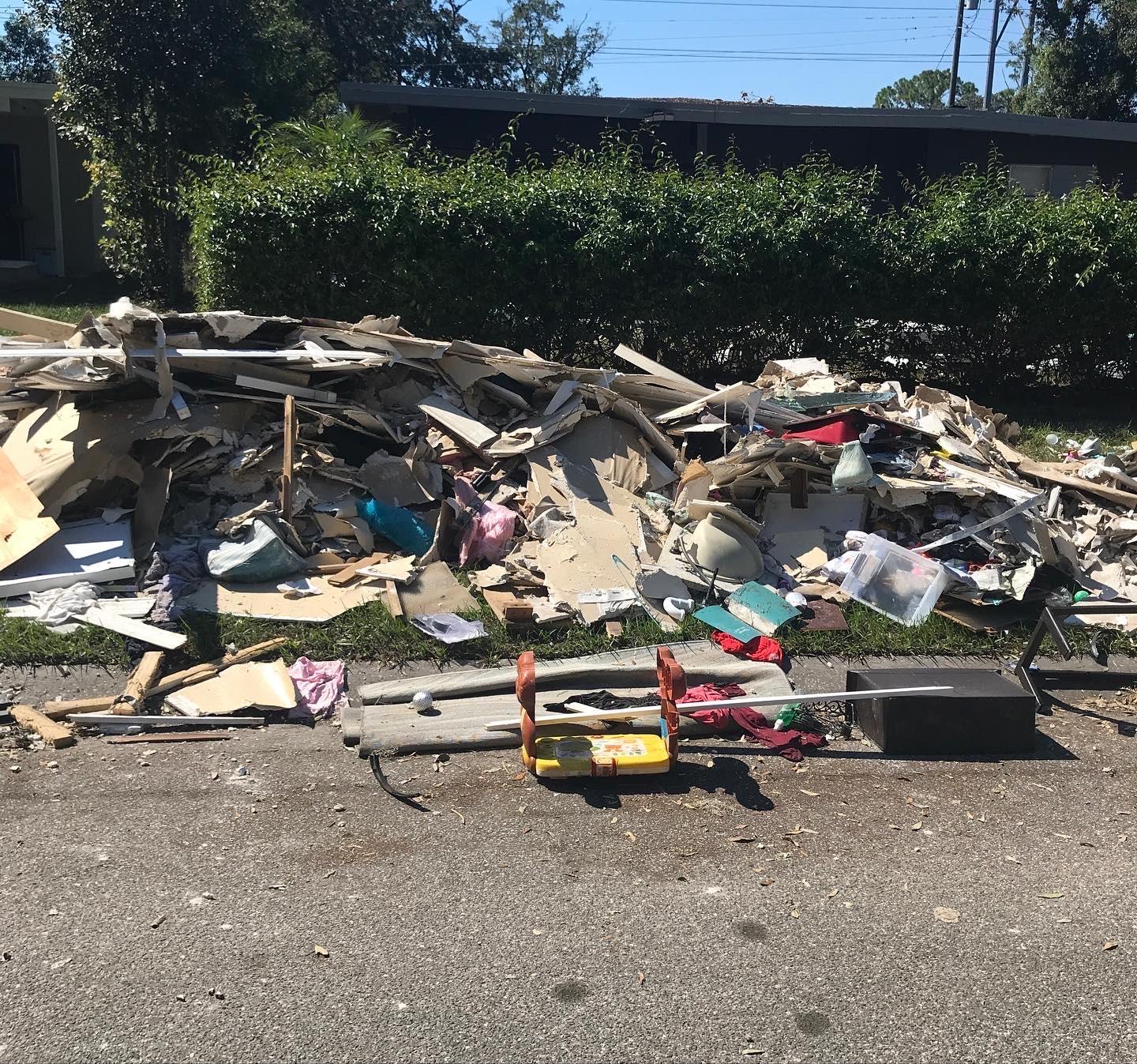
Opinion: FEMA and Red Cross are not Champions
By GO HumanityThis piece comes to us from an activist and member of one of the vulnerable communities impacted by ongoing Atlantic hurricanes. Robin Harris is an an organizer for Central Florida Mutual Aid and collaborates with GO Humanity service team Orlando Oasis on disaster recovery.
I will never forget the tears that filled Ernie’s eyes. I have never forgotten the way his small humble house seemed as if it would collapse at any moment. The aroma of mildew, rust, and stale water was so prevalent.
“Are you from FEMA?” “Are you here to help us out?”
This is what Ernie kept asking us. I finally told him that we were from Eagle Lake—a small town about 10 miles or so from Columbus, Texas, where some of my family, friends, and I were doing community cleanup after Hurricane Harvey bombarded Houston in 2017. We went into areas and towns that had been forgotten, and we were going to help him and anyone that needed help.
“Are you with Red Cross?”
I told him I wasn’t and then I reminded him all of us came from Eagle Lake to help until they got there. But the truth was that we knew that FEMA or Red Cross would come.

The debris of trees, roofing and even dead animals filled the streets. Some yards were now sinkholes from erosion caused by winds, etc. And some yards were still flooded in certain areas. Some people had been hiding out in their homes for various reasons. We had to form a human chain to help them cross over the water that hadn’t drained yet. The streets of this neighborhood looked like a warzone.
Harvey had been gone for about a week. The devastation from environmental/climate racism unfortunately would remain forever. So the questions from Ernie and other folks in forgotten areas like this town were valid. Where was FEMA? Where was the Red Cross?
To answer the mystery concerning the whereabouts of the Red Cross: many readers may remember that during Hurricane Harvey, Red Cross appeared to be missing in action or inactive. A 2017 ProPublica article said: The Red Cross’ anemic response to Hurricane Harvey left officials in several Texas counties seething, emails obtained by ProPublica show. In some cases, the Red Cross simply failed to show up as it promised it would.
However, the Red Cross and other organizations often get credit for the efforts of others. In the case of Hurricane Harvey, Micah Dyer—a school superintendent in DeWitt County—was forced to run a shelter on his own in an unused district building that would eventually house 400 people. For the first three days the shelter was open, only two Red Cross volunteers were there.

The 5-star St. Regis Hotel in Houston, TX
Not only were they not present, but they were very comfortable during this catastrophic event. Red Cross volunteers stayed several nights at the St. Regis Hotel, one of the city’s finest 5-star palaces. ABC13 Investigates found Red Cross vans parked outside the hotel along the street in an area marked for limousines during that time. The Red Cross confirmed the story and apologized, but it didn’t make things right for the people who had suffered the most.
So what about FEMA?
FEMA was missing a lot during Hurricane Harvey. But it also made recovery impossible for Houston residents. State and federal officials have said it for months: for the recovery to succeed, it’s going to have to be locally-driven. But up and down the Texas coast, mayors and county commissioners from the hardest-hit areas have repeatedly complained to state lawmakers about not having access to FEMA data that would tell them how many homes in their towns were damaged and how many people have been given or denied federal assistance. At state legislative hearings, public events, and in interviews, they have portrayed the FEMA aid application process as confusing to people already living with the stress of displacement and property loss.
Fast forward to 2022 and the behaviors of both organizations have not changed. During the aftermath of Hurricane Ian many residents asked almost daily: where were FEMA and Red Cross?

Debris removed from homes in Orlo Vista, FL by local volunteers and homeowners
FEMA sent very few staff members to neighborhoods that need(ed) a lot more assistance. Some FEMA workers were observed not knocking on some doors. Ignoring some residents when asking questions. And the Red Cross? Well, they drove around on Ronnie Circle (a street in Orlo Vista severely damaged by the storm) in what appeared to be like an ice cream truck. They would blow their horn to see if anyone would respond. When they did stop they gave folks lunch in a bag: warm macaroni salad, a fruit cup, an orange, and a water. Not to mention they were not very friendly.
Too often have entities like the Red Cross, FEMA, and local cheesy non-profits captured the glory of stories that they did not author. Who are the real champions?
Since and before 2017, it has been everyday people who have restored communities. Repaired homes. Offered medical assistance. Advocated. Whatever the void, it has been filled by those who often can, couldn’t, and can’t sometimes do for themselves. But somehow, they managed to provide with diligence.
The narratives of elected officials and large organizations always leave the real champions out. We must continue to shine the light on those who don’t wait for photo ops to manipulate the truth.
Donations to GO Humanity’s Annual Appeal will help build a Disaster Resiliency network—seeding, coordinating, and funding small, local organizations like Robin’s which do disaster work most effectively. The project will work in partnership with these communities—never over them or taking credit for their work.

